
Poznan: Where History Meets Modernity
Poznan, a city situated in western Poland, is a perfect blend of historical charm and modern vibrancy. As one of Poland's oldest cities, Poznan offers a rich tapestry of history, culture, and architecture. Stroll through the Old Market Square, where colorful Renaissance buildings and the iconic Town Hall, with its famous mechanical goats, transport you back in time. The Square is also a hub for cafes and restaurants, making it a great spot to relax and soak in the atmosphere. The city is also known for its green spaces and parks. Citadel Park, the largest in Poznan, is a must-visit. This serene park is not just a place for relaxation but also a historical site with remnants of old fortifications and military museums. For those interested in religious history, the Poznan Cathedral on Ostrow Tumski island is a landmark not to be missed. This Gothic cathedral is one of the oldest in Poland and offers a glimpse into the country’s Christian heritage. Poznan is also a city of festivals and events. The annual Malta Festival is a highlight, featuring a mix of theater, music, and art from around the world. Food lovers will appreciate the local cuisine, with St. Martin's croissant being a must-try delicacy. The city's vibrant nightlife, trendy boutiques, and modern shopping centers add to its appeal, making Poznan a dynamic city that caters to all types of travelers.
Local tips in Poznan
- Visit the Old Market Square at noon to see the Town Hall's mechanical goats perform.
- Try the traditional St. Martin's croissant, especially on St. Martin's Day in November.
- Explore Citadel Park for a mix of nature and history, including military museums.
- Take a guided tour of the Poznan Cathedral to learn about its rich history.
- Check the schedule for the annual Malta Festival if visiting in June for a unique cultural experience.
Neighbourhoods in Poznan
Poznan: Where History Meets Modernity
Poznan, a city situated in western Poland, is a perfect blend of historical charm and modern vibrancy. As one of Poland's oldest cities, Poznan offers a rich tapestry of history, culture, and architecture. Stroll through the Old Market Square, where colorful Renaissance buildings and the iconic Town Hall, with its famous mechanical goats, transport you back in time. The Square is also a hub for cafes and restaurants, making it a great spot to relax and soak in the atmosphere. The city is also known for its green spaces and parks. Citadel Park, the largest in Poznan, is a must-visit. This serene park is not just a place for relaxation but also a historical site with remnants of old fortifications and military museums. For those interested in religious history, the Poznan Cathedral on Ostrow Tumski island is a landmark not to be missed. This Gothic cathedral is one of the oldest in Poland and offers a glimpse into the country’s Christian heritage. Poznan is also a city of festivals and events. The annual Malta Festival is a highlight, featuring a mix of theater, music, and art from around the world. Food lovers will appreciate the local cuisine, with St. Martin's croissant being a must-try delicacy. The city's vibrant nightlife, trendy boutiques, and modern shopping centers add to its appeal, making Poznan a dynamic city that caters to all types of travelers.
When is the best time to go to Poznan?
Iconic landmarks you can’t miss
Old Market Square
Experience the vibrant culture and stunning architecture of Poznań's Old Market Square, a historical landmark filled with charm and local flavor.
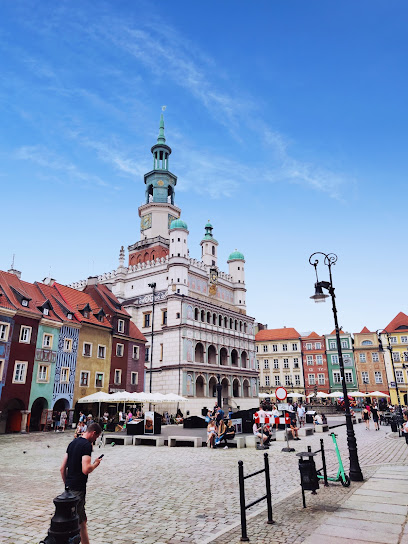
Park Cytadela
Discover the natural beauty and historical significance of Park Cytadela, Poznań's premier city park, filled with monuments and serene landscapes.
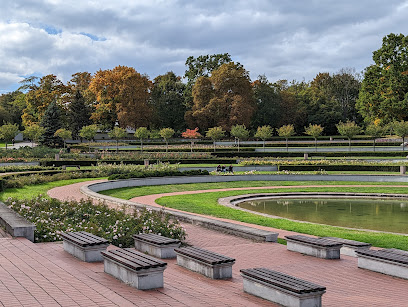
Poznań Palm House
Explore the vibrant flora and serene beauty of the Poznań Palm House, a unique botanical garden and aquarium in the heart of Poland's cultural gem.
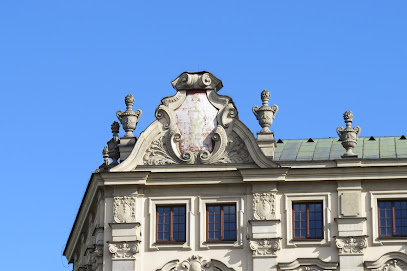
Imperial Castle
Explore the Imperial Castle in Poznań, a historical gem showcasing stunning architecture and cultural heritage in the heart of Poland.
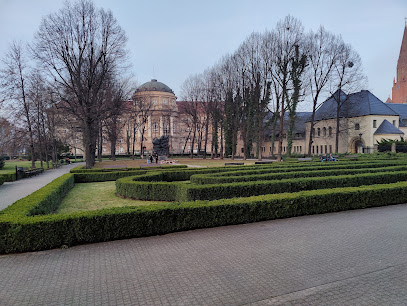
University Botanical Garden
Discover the tranquil beauty of the University Botanical Garden in Poznań, a lush oasis perfect for nature lovers and casual strolls.
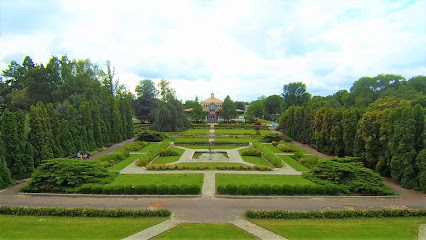
Brama Poznania
Discover Poznań's history at Brama Poznania, a cultural center that brings the city's rich heritage to life through engaging exhibits and interactive experiences.
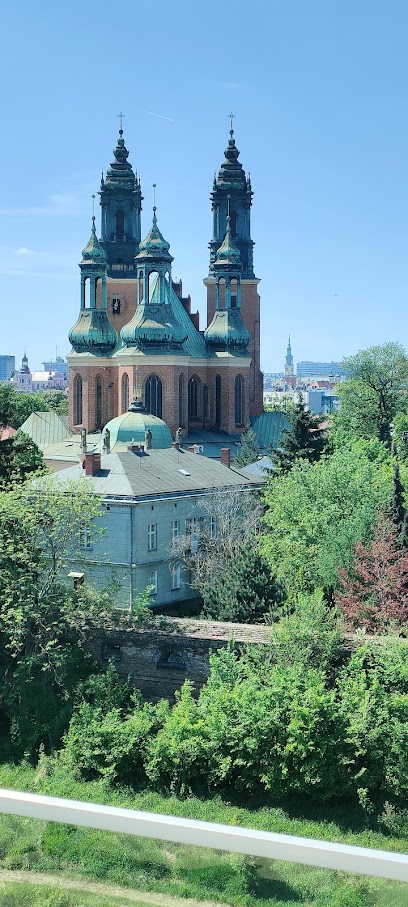
Muzeum Narodowe w Poznaniu
Explore the cultural richness of Poland at Muzeum Narodowe w Poznaniu, home to exceptional art collections and historical treasures.
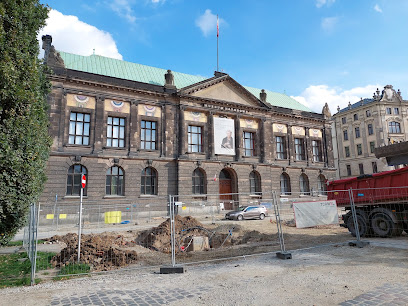
Royal Castle
Explore the Royal Castle in Poznań, a historical landmark rich in Polish heritage featuring stunning architecture and captivating exhibitions.
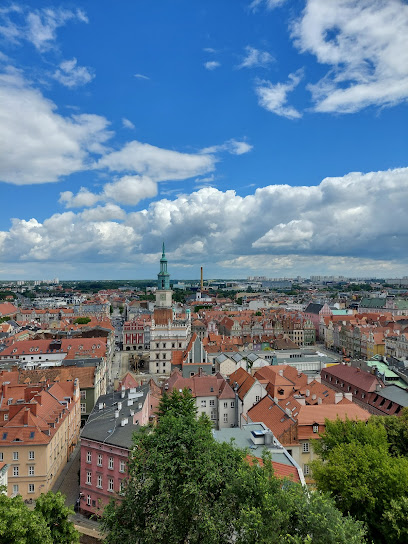
Basilica of Our Lady of Perpetual Help, Mary Magdalene and St. Stanislaus
Discover the stunning Basilica of Our Lady of Perpetual Help in Poznań, a historical landmark filled with exquisite architecture and rich cultural heritage.
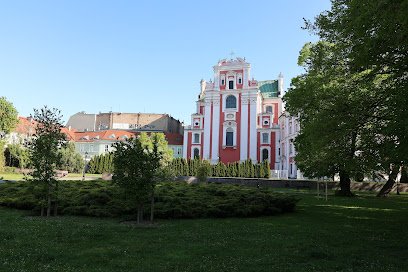
Poznań Goats
Experience the whimsical charm of the Poznań Goats, a delightful tradition in the heart of Poznań's Old Market Square, captivating visitors daily.
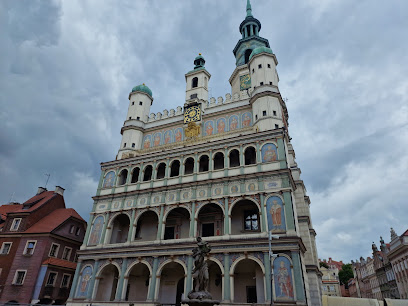
Fort Winiary
Discover the historical charm and breathtaking views of Fort Winiary in Poznań, a landmark that beautifully blends history with natural beauty.
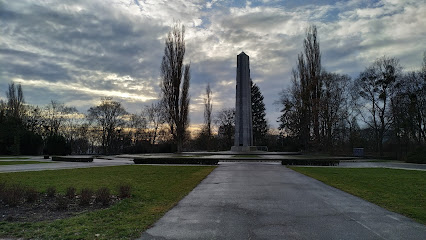
Museum of Armament
Immerse yourself in the fascinating world of military history and technology at the Museum of Armament in Poznań, a unique tourist attraction for all ages.
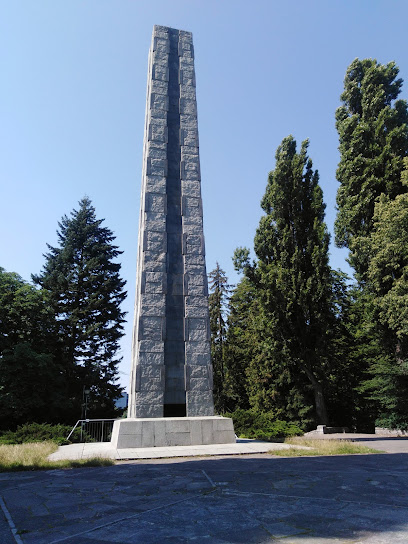
Adam Mickiewicz Square
Explore Adam Mickiewicz Square, a historical landmark in Poznań, where culture, beauty, and community converge in an unforgettable setting.
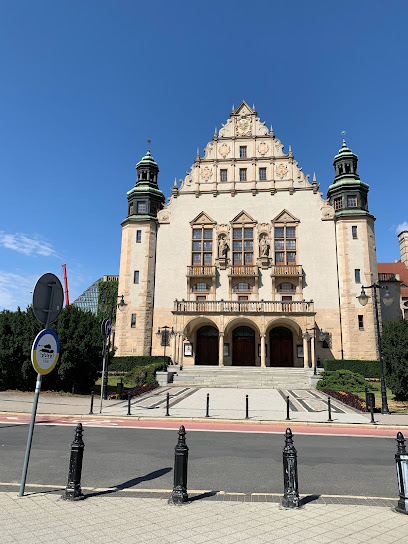
Museum of Applied Arts
Discover the beauty of decorative arts at the Museum of Applied Arts in Poznań, showcasing a rich collection of Polish craftsmanship and cultural heritage.
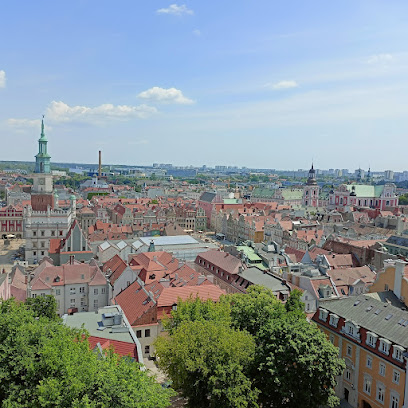
Stary Marych Monument
Discover the iconic Stary Marych Monument in Poznań, a symbol of resilience and cultural heritage, nestled in the enchanting Stare Miasto district.
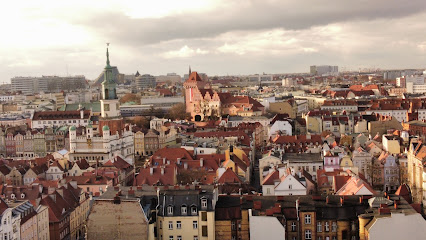
Unmissable attractions to see
Termy Maltańskie
Experience ultimate relaxation and fun at Termy Maltańskie, Poznań's top destination for thermal baths, wellness, and family-friendly activities.
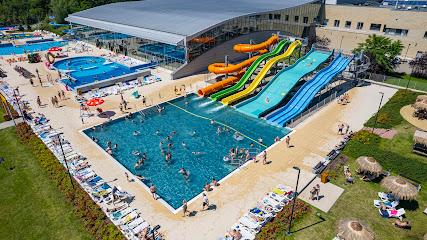
Park Cytadela
Explore the lush landscapes and historical charm of Park Cytadela, a premier city park and tourist attraction in Poznań, Poland.
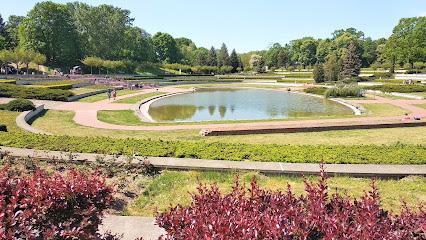
Poznań Palm House
Discover the lush beauty and diverse ecosystems at the Poznań Palm House, a botanical paradise featuring exotic plants and vibrant aquatic life.
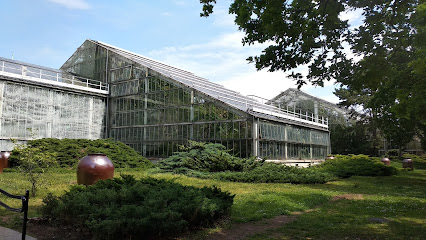
Imperial Castle
Discover the Imperial Castle in Poznań, a historical gem showcasing rich heritage and stunning architecture, perfect for cultural enthusiasts and tourists alike.
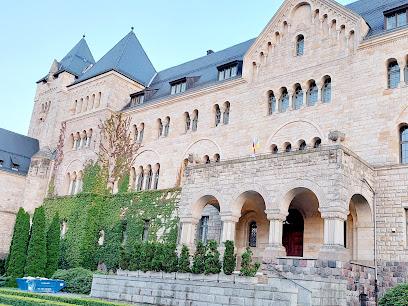
Sołacki Park
Discover the tranquility of Sołacki Park, a charming green oasis in Poznań, perfect for leisurely strolls, family outings, and nature appreciation.
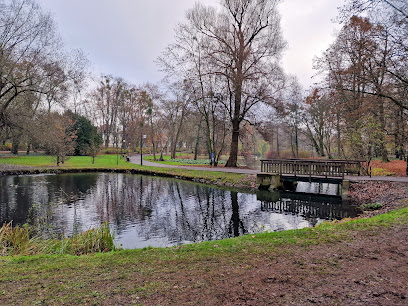
Woodrow Wilson Park
Discover the beauty of Woodrow Wilson Park in Poznań, where lush landscapes meet serene tranquility for a perfect escape.
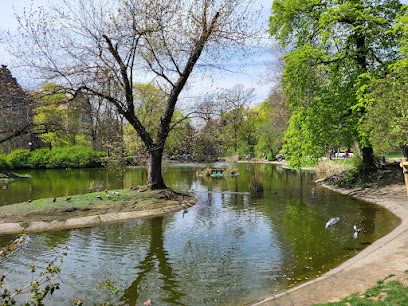
University Botanical Garden
Explore the enchanting University Botanical Garden in Poznań, a lush green paradise showcasing diverse flora and serene landscapes.
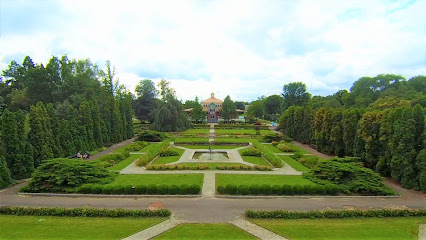
Brama Poznania
Discover the rich historical tapestry of Poznań at Brama Poznania, a cultural center that brings the past to life through interactive exhibits.
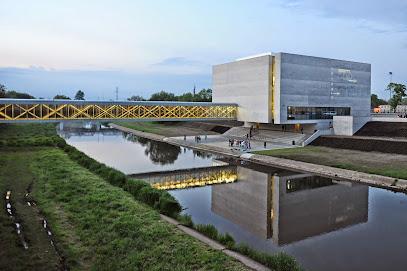
Poznań Cathedral
Explore the architectural beauty and historical significance of Poznań Cathedral, an iconic tourist attraction in Poland's rich cultural landscape.
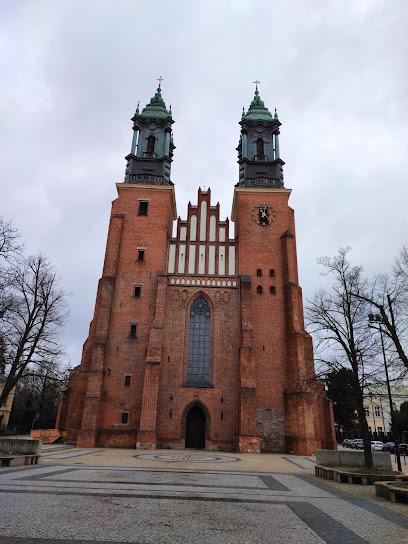
Croissant Museum
Discover the art of Polish pastry-making at Poznań's Croissant Museum, a delicious journey through tradition and taste.
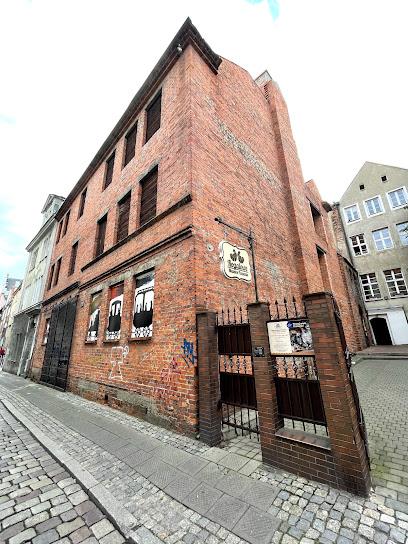
Jan Kasprowicz Park in Poznań
Experience the lush beauty and tranquility of Jan Kasprowicz Park in Poznań, a perfect retreat for nature lovers and families.
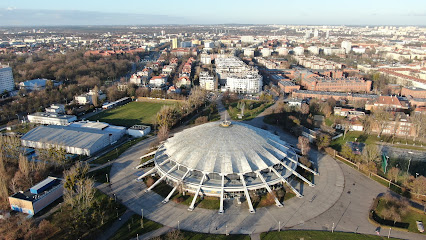
Raczyński Palace in Rogalin
Explore Raczyński Palace in Rogalin, a historical museum surrounded by breathtaking gardens and rich Polish heritage.
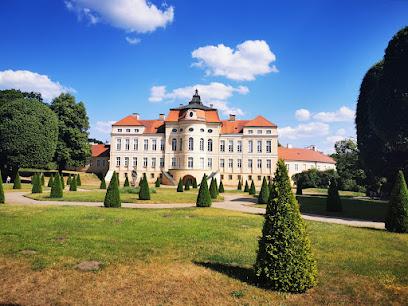
John Paul II Park
Discover the beauty and tranquility of John Paul II Park, a serene oasis in Poznań, perfect for relaxation and outdoor activities.
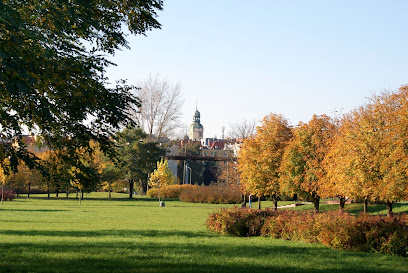
Muzeum Narodowe w Poznaniu
Explore the artistic heritage of Poland at Muzeum Narodowe w Poznaniu, home to an extensive collection of art and historical artifacts.
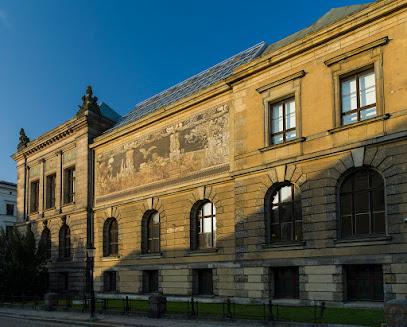
Adam Mickiewicz Park
Explore the lush landscapes and cultural treasures of Adam Mickiewicz Park in Poznań, a serene escape in the heart of the city.
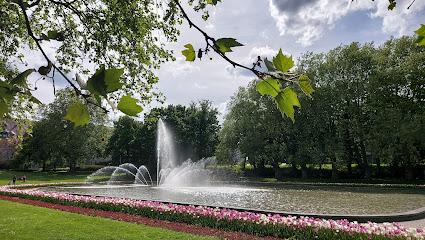
Essential places to dine
Fat Bob Burger
Experience gourmet American burgers at Fat Bob Burger in Poznań's Stare Miasto - where flavor meets comfort in every bite.
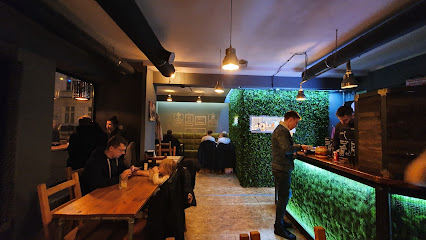
Pyra Bar Poznań
Discover authentic Polish flavors at Pyra Bar Poznań—where every dish tells a story of tradition and taste.
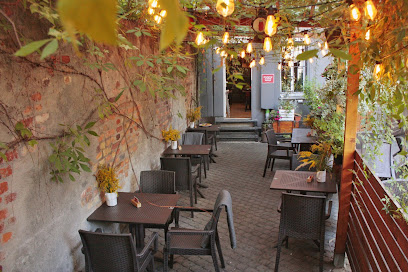
Drevny Kocur
Experience authentic Czech cuisine at Drevny Kocur in Poznań - where tradition meets flavor in every dish.
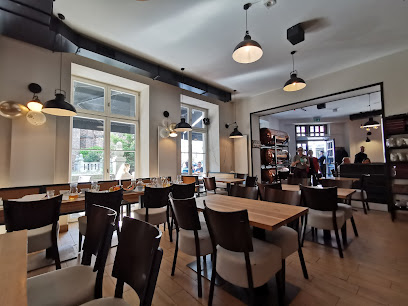
ORZO Poznań
Discover ORZO Poznań: A family-friendly restaurant offering vegan delights and crafted cocktails in the heart of Stare Miasto.
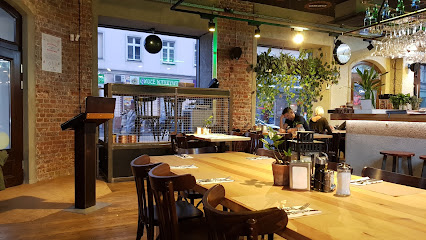
Wiejskie Jadło
Experience authentic Polish cuisine at Wiejskie Jadło in Poznań's historic Stary Rynek - where tradition meets flavor.
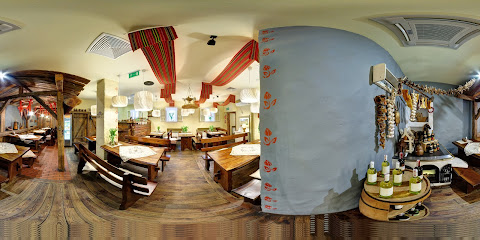
Mai Pen Raj
Experience authentic Asian cuisine in Poznań at Mai Pen Raj - your gateway to Thai, Vietnamese & Indonesian flavors.
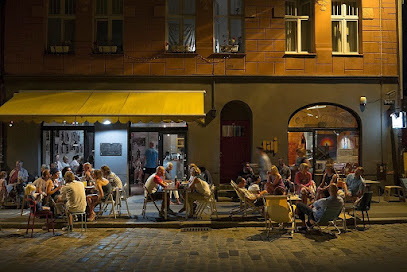
Zdolni
Experience the best of Polish cuisine at Zdolni Bistro in Poznań—where tradition meets modern taste in every dish.
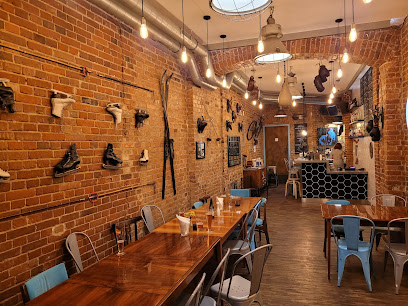
Lavenda Cafe & Lunch
Experience the cozy charm of Lavenda Cafe & Lunch in Poznań—where delicious breakfasts and delightful lunches await every visitor.
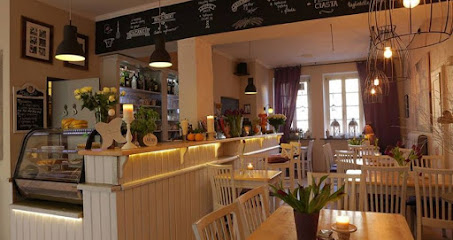
Yetztu Poznań Ramen Noodles
Savor authentic Japanese ramen at Yetztu in Poznań—where every bowl tells a story.
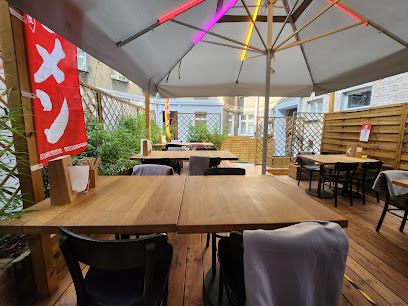
Restauracja Rynek 95
Discover exquisite Polish cuisine at Restauracja Rynek 95 in Poznań's historic Old Market Square, blending tradition with modern flavors.
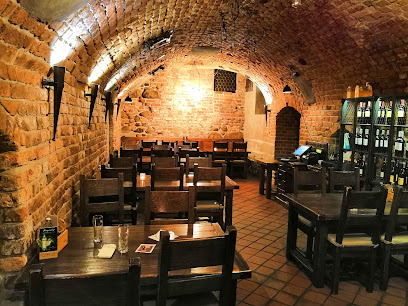
Bar a Boo
Experience authentic Italian cuisine at Bar a Boo in Poznań's historic Stare Miasto – perfect for food lovers seeking memorable dining.
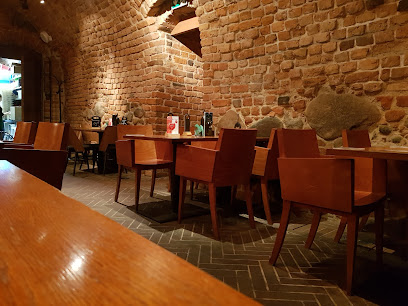
Pyšna Chałupa
Savor traditional Czech cuisine at Pyšna Chałupa in the historic heart of Poznań—an unmissable culinary gem for tourists.
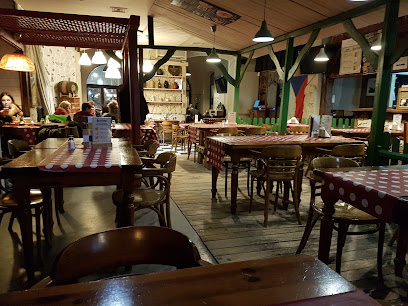
Just Friends Poznań - Restauracja | Cocktail bar
Experience culinary excellence at Just Friends Poznań - where tradition meets modernity in every bite.
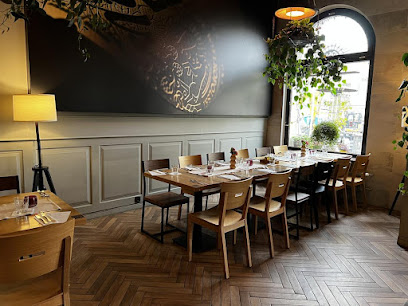
Weranda Caffe
Discover the perfect blend of comfort and flavor at Weranda Caffe in Poznań - where every sip and bite tells a story.
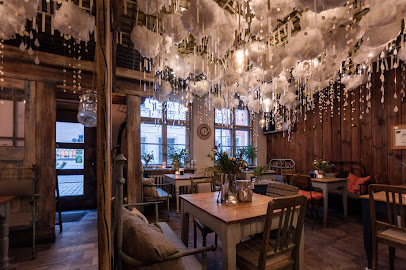
Ptasie Radio
Discover the charm of Ptasie Radio in Poznań - where delicious breakfasts meet cozy ambiance for an unforgettable dining experience.
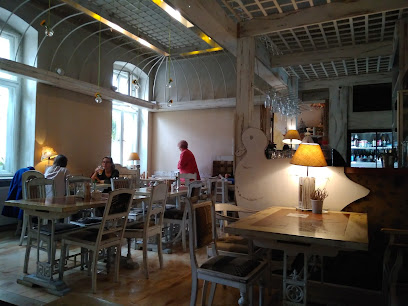
Markets, malls and hidden boutiques
Posnania
Discover Posnania, Poznań's premier shopping destination, featuring diverse shops, dining, and family-friendly entertainment in a modern setting.
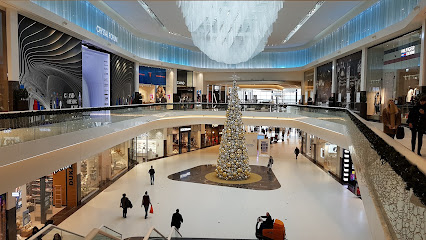
Avenida Poznań
Discover Avenida Poznań, the ultimate shopping mall in Poznań, Poland, featuring a variety of stores and a captivating planetarium experience.
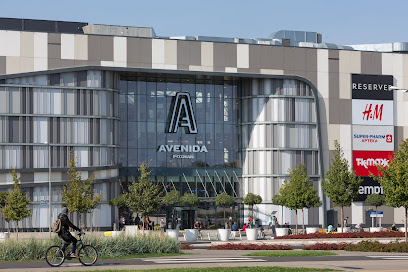
Stary Browar
Explore Stary Browar in Poznań - a historic shopping mall that combines shopping, dining, and culture in a stunning architectural setting.
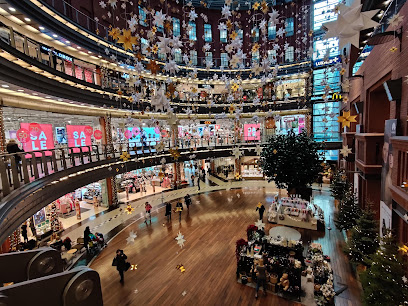
M1
Discover M1 Shopping Mall in Poznań: A retail paradise with diverse shopping, dining, and entertainment options for every visitor.
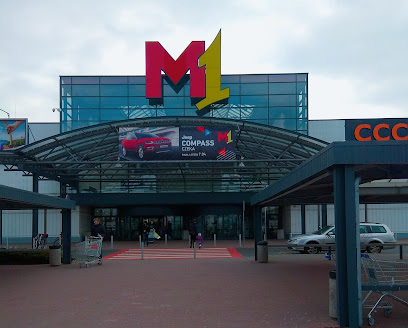
Poznań Plaza
Explore Poznań Plaza: A bustling shopping hub in Poznań with diverse stores, dining options, and entertainment for an unforgettable visit.
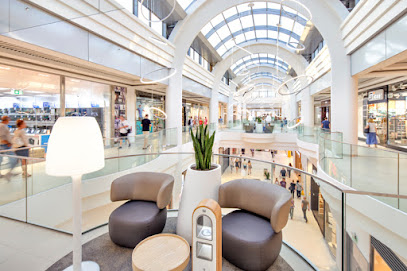
Factory Poznań
Discover unbeatable discounts and trendy styles at Factory Poznań, the ultimate outlet destination for savvy shoppers in Poland.
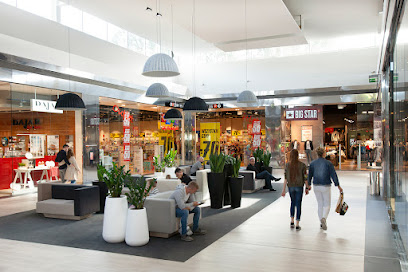
King Cross Marcelin
Explore King Cross Marcelin, the ultimate shopping mall in Poznań, featuring a wide variety of stores, dining options, and entertainment for all ages.
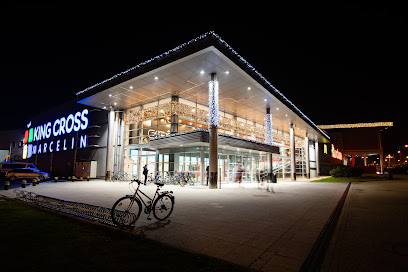
Galeria Pestka
Discover Galeria Pestka, Poznań's premier shopping mall filled with diverse stores, delightful dining, and family-friendly entertainment options.
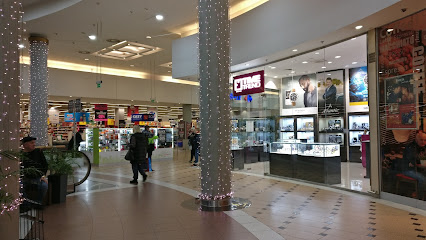
Galeria Panorama
Discover Galeria Panorama, Poznań's shopping gem, offering a mix of retail, dining, and entertainment for a perfect day out.
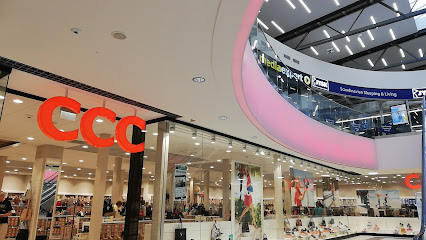
Galeria MM
Explore Galeria MM in Poznań for a unique shopping and dining experience, blending local charm with international flair in a dynamic atmosphere.
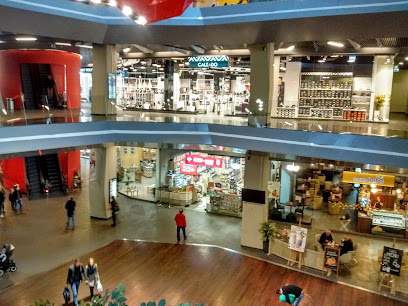
Franowo Shopping Mall
Explore Franowo Shopping Mall in Poznań – a retail paradise with diverse stores from fashion to electronics, perfect for every shopping enthusiast.
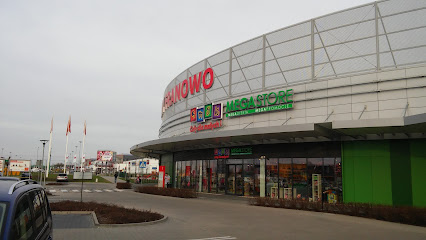
Kupiec Poznański
Discover Kupiec Poznański, Poznań's bustling shopping mall offering a variety of stores, delicious dining, and a vibrant atmosphere for all visitors.
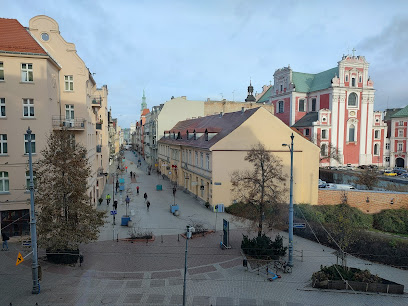
Galeria A2
Discover Galeria A2, Poznań's vibrant shopping mall featuring top brands, diverse dining, and entertainment for a perfect day out.
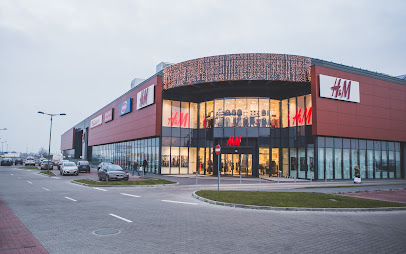
Flying Tiger Copenhagen
Discover unique gifts, fun home goods, and quirky toys at Flying Tiger Copenhagen in the heart of Poznań's charming Stare Miasto.
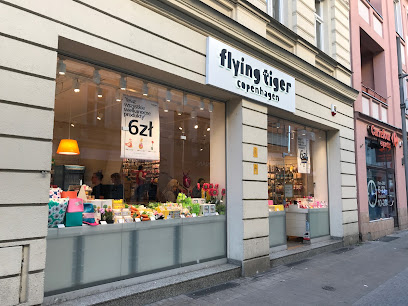
Second Hand From London
Explore the vibrant second-hand fashion scene at Second Hand From London in Poznań, where unique finds await every style-savvy traveler.
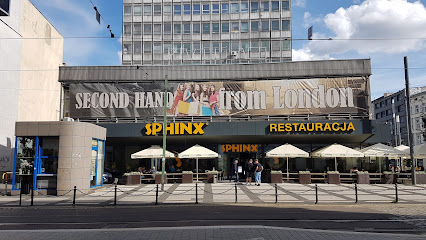
Essential bars & hidden hideouts
Piwna Stopa
Experience the best of Polish craft beer at Piwna Stopa, a brewpub in Poznań offering delicious brews and hearty meals in a vibrant atmosphere.
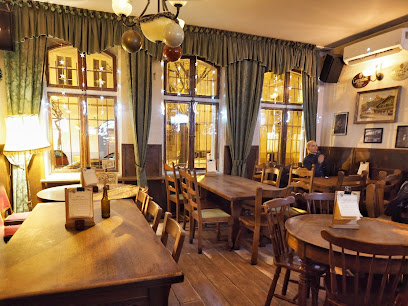
Pijalnia Wódki i Piwa
Experience the heart of Poznań's nightlife at Pijalnia Wódki i Piwa, where local spirits meet vibrant atmosphere and cultural charm.
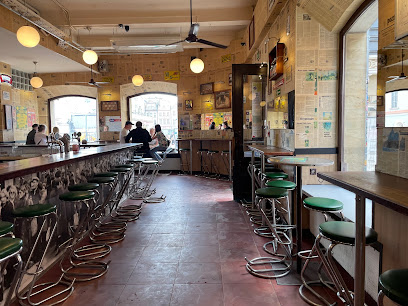
Hola Hola Bar
Discover the lively atmosphere and diverse drink selection at Hola Hola Bar, a popular destination in Poznań's vibrant nightlife scene.
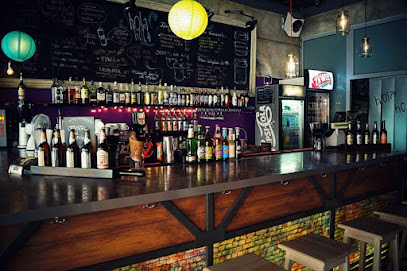
# hashtag
Discover the vibrant atmosphere of Hashtag Brewpub in Poznań, where craft beer meets delicious food and lively entertainment.
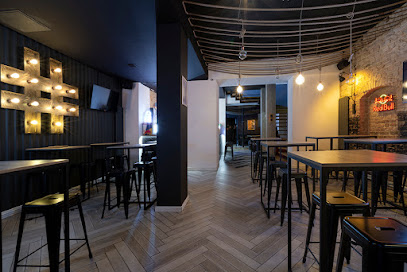
Czupito
Discover the vibrant nightlife of Poznań at Czupito, renowned for its creative shots and lively atmosphere in the heart of Stare Miasto.
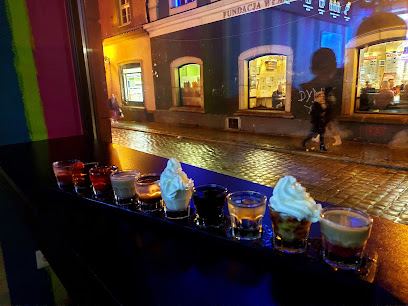
Ministerstwo Browaru
Immerse yourself in Poznań's vibrant pub scene at Ministerstwo Browaru, a craft beer haven offering an extensive selection and a lively ambiance.
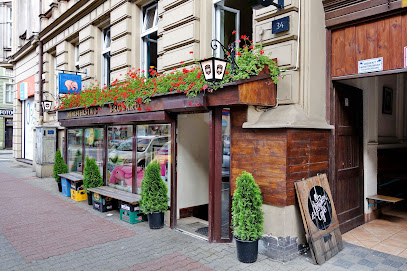
NaPiwek PUB
Discover the vibrant flavors of craft beer at NaPiwek PUB in Poznań's charming Stare Miasto, a must-visit brewpub for beer lovers.
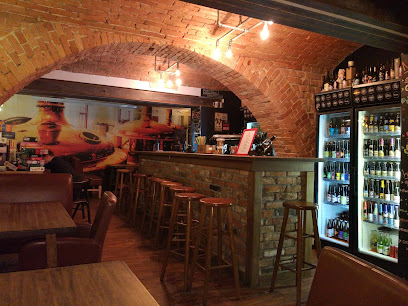
Dram: Cocktail Bar & Restaurant
Experience a whimsical cocktail journey at Dram in Poznań, where imaginative drinks and live music blend seamlessly for an unforgettable night out.
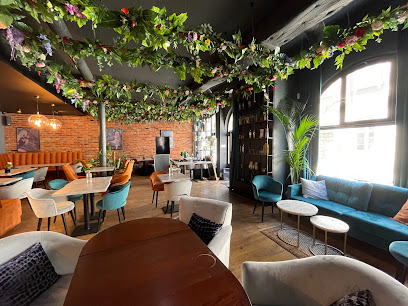
Lot Chmiela
Experience the vibrant atmosphere of Lot Chmiela, a unique lounge in Poznań offering a delightful selection of ciders, cocktails, and snacks.
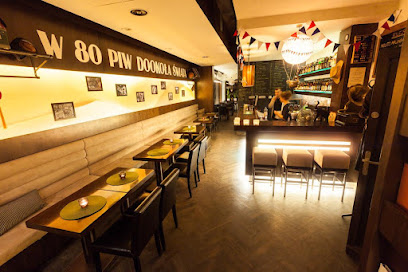
The Dubliner Irish Pub
Discover the lively spirit of Ireland at The Dubliner Irish Pub in Poznań, where hearty food and great drinks await.
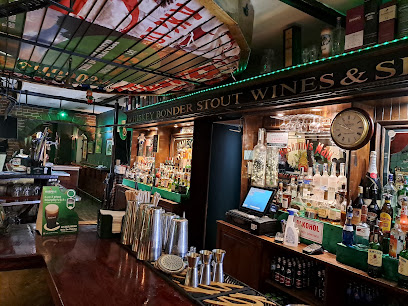
Van Gogh PUB
Discover the artistic essence of Poznań at Van Gogh PUB, a charming brewpub offering delightful craft beers and a vibrant atmosphere.
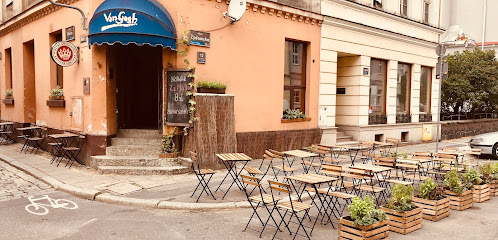
Wściekły Chmiel
Experience the best of craft beverages at Wściekły Chmiel, Poznań's lively pub known for its unique ciders and cocktails.
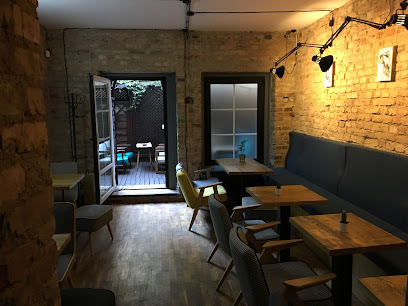
Ice Bar Poznań
Discover the frosty wonders of Ice Bar Poznań, where artisan cocktails meet a unique ice-cold atmosphere for an unforgettable night out.
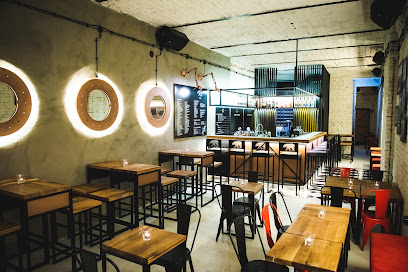
Wodopój Bar
Experience the vibrant atmosphere and innovative cocktails at Wodopój Bar, a top cocktail bar in Poznań, Poland.
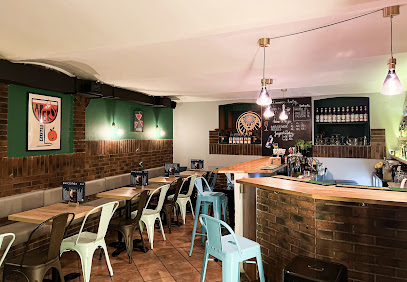
Local Phrases
-
- HelloCześć
[Cheshch] - GoodbyeDo widzenia
[Doh vid-zen-ya] - YesTak
[Tahk] - NoNie
[Nyeh] - Please/You're welcomeProszę
[Proh-sheh] - Thank youDziękuję
[Jenkoo-yeh] - Excuse me/SorryPrzepraszam
[Pzheh-prah-sham] - How are you?Jak się masz?
[Yak sheh mah-sh] - Fine. And you?Dobrze. A ty?
[Doh-bzheh. Ah ti] - Do you speak English?Czy mówisz po angielsku?
[Chih mo-veesh poh ahn-gyel-skoo] - I don't understandNie rozumiem
[Nyeh roh-zoo-myem]
- HelloCześć
-
- I'd like to see the menu, pleaseChciałbym zobaczyć menu, proszę
[H-chaw-bim zoh-bah-chich meh-noo, proh-sheh] - I don't eat meatNie jem mięsa
[Nyeh yem myen-sah] - Cheers!Na zdrowie!
[Nah zdroh-vee-eh] - I would like to pay, pleaseChciałbym zapłacić, proszę
[H-chaw-bim zah-pla-cheech, proh-sheh]
- I'd like to see the menu, pleaseChciałbym zobaczyć menu, proszę
-
- Help!Pomocy!
[Poh-mo-tsi] - Go away!Odjedź!
[Oh-dyeh-j] - Call the Police!Zadzwoń po policję!
[Zahd-zvon poh po-lee-tsyeh] - Call a doctor!Zadzwoń po lekarza!
[Zahd-zvon poh leh-kah-zah] - I'm lostZgubiłem się
[Zgoo-bee-wem sheh] - I'm illJestem chory
[Yeh-stem hoh-ri]
- Help!Pomocy!
-
- I'd like to buy...Chciałbym kupić...
[H-chaw-bim koo-peech] - I'm just lookingTylko się rozglądam
[Tih-ko sheh rohz-gwah-dam] - How much is it?Ile to kosztuje?
[Ee-leh toh kohs-too-yeh] - That's too expensiveTo jest za drogie
[Toh yest zah dro-geh] - Can you lower the price?Czy możesz obniżyć cenę?
[Chih mo-zhes oh-bnee-zhich cheh-neh]
- I'd like to buy...Chciałbym kupić...
-
- What time is it?Która jest godzina?
[K-too-rah yest goh-dzee-nah] - It's one o'clockJest pierwsza
[Yest pyerv-sha] - Half past (10)Pół do dziesiątej
[Poow doh dzyeh-shon-teh] - MorningRano
[Rah-no] - AfternoonPopołudnie
[Poh-po-woo-dnyeh] - EveningWieczór
[V-yetch-oohr] - YesterdayWczoraj
[V-choh-rye] - TodayDzisiaj
[Jee-syahy] - TomorrowJutro
[Yoo-tro] - 1Jeden
[Yeh-den] - 2Dwa
[Dvah] - 3Trzy
[Tshih] - 4Cztery
[Ch-teh-ri] - 5Pięć
[Pyehnch] - 6Sześć
[Sheshch] - 7Siedem
[Shyeh-dem] - 8Osiem
[Oh-syem] - 9Dziewięć
[Jyev-nyehch] - 10Dziesięć
[Dzyeh-shon-tyehch]
- What time is it?Która jest godzina?
-
- Where's a/the...?Gdzie jest...
[Gd-zhe yest] - What's the address?Jaki jest adres?
[Yah-ki yest ah-dresh] - Can you show me (on the map)?Czy możesz mi pokazać (na mapie)?
[Chih mo-zhes mee poh-kah-zach (nah mah-pee-eh)] - When's the next (bus)?Kiedy jest następny (autobus)?
[Kieh-dy yest nas-tep-ny (ow-toh-boos)] - A ticket (to ....)Bilet (do ....)
[Bee-let (doh)]
- Where's a/the...?Gdzie jest...
History of Poznan
-
Poznan is one of the oldest cities in Poland, with its origins tracing back to the 8th century. It was an early center of the Polish state and one of the main seats of the first Polish rulers. The city was officially founded in 1253 and played a significant role in the formation of the Polish state.
-
In 966, Mieszko I, the first ruler of Poland, was baptized in Poznan, marking the Christianization of Poland. This event is considered the birth of the Polish nation and is a cornerstone of Polish identity. The Cathedral of Poznan, located on the Ostrów Tumski island, is said to have witnessed this monumental event.
-
During the medieval period, Poznan became a crucial trade hub due to its strategic location on the Warta River and along the trade routes connecting Eastern and Western Europe. The city flourished economically, which is evident in its well-preserved medieval architecture, including the Old Market Square and the Renaissance Town Hall.
-
The Royal Castle in Poznan, constructed in the 13th century, served as a residence for the Polish kings and dukes. It was one of the largest castles in Poland and a symbol of the city's political significance. Although it was destroyed and rebuilt multiple times, the castle remains an important historical landmark.
-
In the mid-17th century, Poznan suffered significant damage during the Swedish invasion known as the Deluge. The city was occupied by Swedish forces in 1655, leading to extensive destruction and a period of decline. Poznan's resilience, however, saw it gradually rebuild and recover in the following decades.
-
Poznan experienced significant changes during the Partitions of Poland in the late 18th century. The city became part of Prussia and was known as Posen. Despite these changes, Poznan remained a focal point for Polish culture and resistance, particularly during the Greater Poland Uprising of 1918-1919, which contributed to the re-establishment of Poland's independence.
-
The 19th century saw Poznan's rapid industrialization under Prussian rule. The city's infrastructure improved significantly, with the construction of railways, factories, and public buildings. Poznan became a vibrant industrial and commercial center, fostering a growing sense of Polish national identity.
-
During World War II, Poznan was occupied by Nazi Germany and incorporated into the Reich as part of the Wartheland. The city suffered extensive damage, and its Polish population faced severe repression. Many historical buildings were destroyed, and the city's Jewish community was decimated during the Holocaust.
-
After World War II, Poznan became part of the People's Republic of Poland. The city underwent significant reconstruction and modernization efforts. The Poznan International Fair, which had been established in 1921, became a symbol of the city's economic revival and international significance.
-
One of the most significant events in Poznan's recent history is the June 1956 protests. Workers from the Cegielski factories protested against poor living conditions and political repression, leading to violent clashes with the authorities. This uprising is considered a precursor to later movements that contributed to the eventual fall of communism in Poland.
-
Today, Poznan is recognized as a major cultural and academic center in Poland. It is home to several universities, including the prestigious Adam Mickiewicz University. The city's cultural landscape is enriched by numerous theaters, museums, and annual events such as the Malta Festival and the Ethno Port music festival.
Poznan Essentials
-
Poznan is well-connected to major cities in Poland and Europe. The Poznan-Lawica Henryk Wieniawski Airport (POZ) is located about 7 km west of the city center. It offers both international and domestic flights. The city is also accessible by train, with Poznan Glowny being one of the main railway hubs in Poland. You can take direct trains from Warsaw, Berlin, and other major cities. If you prefer to drive, Poznan is connected by several major highways, including the A2 motorway.
-
Transportation in Poznan is efficient and convenient. The city has an extensive public transport network that includes trams and buses, operated by MPK Poznan. Tickets can be purchased at kiosks, ticket machines, or via a mobile app. Taxis and ride-sharing services like Uber are also available. For those who prefer cycling, Poznan has bike-sharing services and numerous bike lanes. Walking is another great way to explore the city, especially in the Old Town area.
-
The official currency in Poland is the Polish Zloty (PLN). Credit and debit cards are widely accepted in most hotels, restaurants, and shops. ATMs are plentiful throughout the city, and you can also find currency exchange offices (Kantor) in many locations, including the airport and major shopping centers. It's advisable to carry some cash, especially for smaller establishments and local markets.
-
Poznan is generally a safe city for tourists, but it's always good to take standard precautions. Avoid walking alone in poorly-lit areas at night and be mindful of your belongings in crowded places. Areas around the main train station can be less safe, especially at night, so exercise caution. Pickpocketing can occur in busy tourist spots, so keep your valuables secure.
-
In case of emergency, dial 112 for immediate assistance. This number connects you to emergency services, including police, fire brigade, and medical help. The main hospital in Poznan is the University Hospital, which has an emergency department. Pharmacies are also widely available for minor health issues. It is advisable to have travel insurance that covers medical emergencies.
-
Fashion: Do dress smartly, especially when dining out or visiting cultural sites. Avoid overly casual or revealing clothing. Religion: Do respect religious customs. When visiting churches, dress modestly and remain quiet. Public Transport: Do validate your ticket once you board. Don't eat or drink on public transport. Greetings: Do greet people with a firm handshake and maintain eye contact. Eating & Drinking: Do try local specialties like 'pierogi' and 'szybka'. Don't rush your meal; dining is a leisurely activity in Poland.
-
To experience Poznan like a local, visit the Stary Browar shopping center, which is a blend of modernity and history. Spend some time at the local farmer's market at Plac Wielkopolski to buy fresh produce and traditional Polish foods. Attend a concert or event at the Malta Festival, which is held annually and features a variety of performances. Don't miss out on trying a 'rogal świętomarciński,' a local pastry that is a must-try.
Trending Landmark in Poznan
-
Old Market Square
-
Park Cytadela
-
Poznań Palm House
-
Imperial Castle
-
University Botanical Garden
-
Brama Poznania
-
Muzeum Narodowe w Poznaniu
-
Royal Castle
-
Basilica of Our Lady of Perpetual Help, Mary Magdalene and St. Stanislaus
-
Poznań Goats
-
Fort Winiary
-
Museum of Armament
-
Adam Mickiewicz Square
-
Museum of Applied Arts
-
Stary Marych Monument
Nearby Cities to Poznan
-
Things To Do in Bydgoszcz
-
Things To Do in Torun
-
Things To Do in Wroclaw
-
Things To Do in Lodz
-
Things To Do in Szczecin
-
Things To Do in Opole
-
Things To Do in Czestochowa
-
Things To Do in Berlin
-
Things To Do in Gdansk
-
Things To Do in Sopot
-
Things To Do in Elblag
-
Things To Do in Hradec Králové
-
Things To Do in Potsdam
-
Things To Do in Gliwice
-
Things To Do in Dresden

















